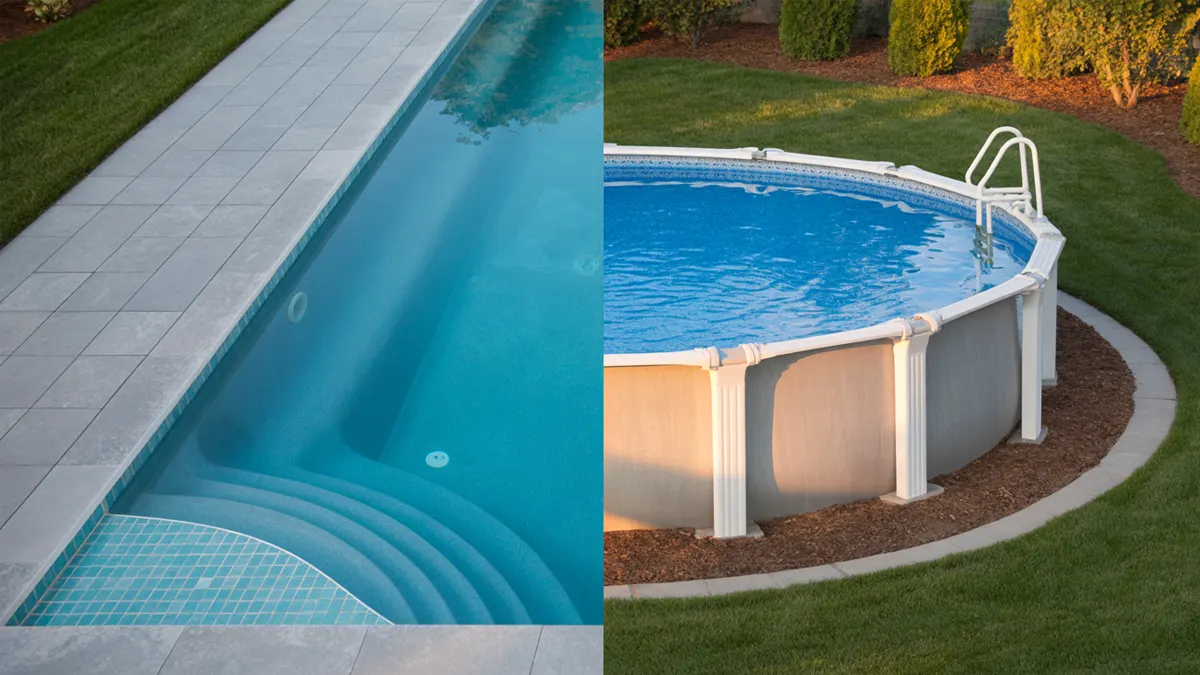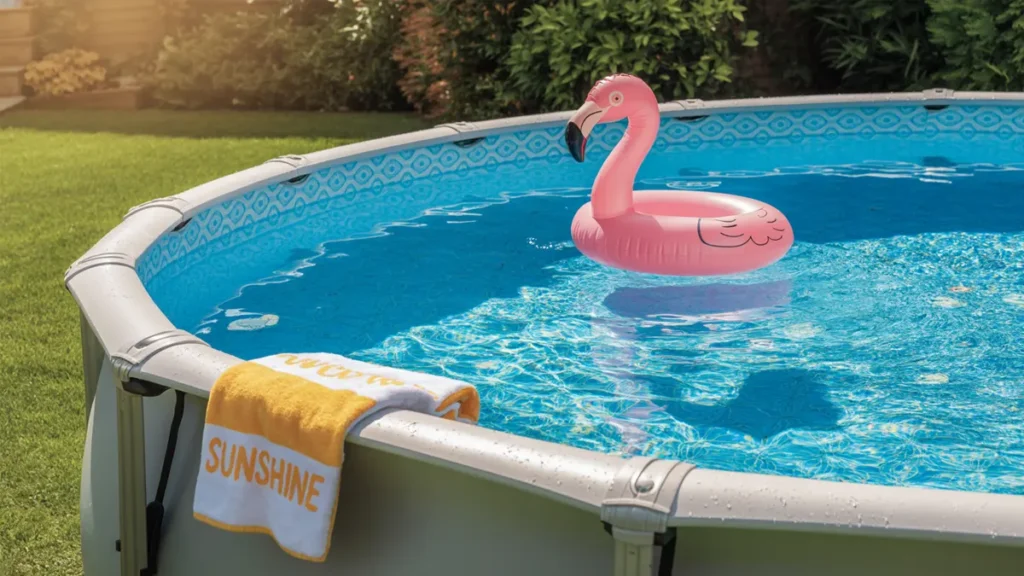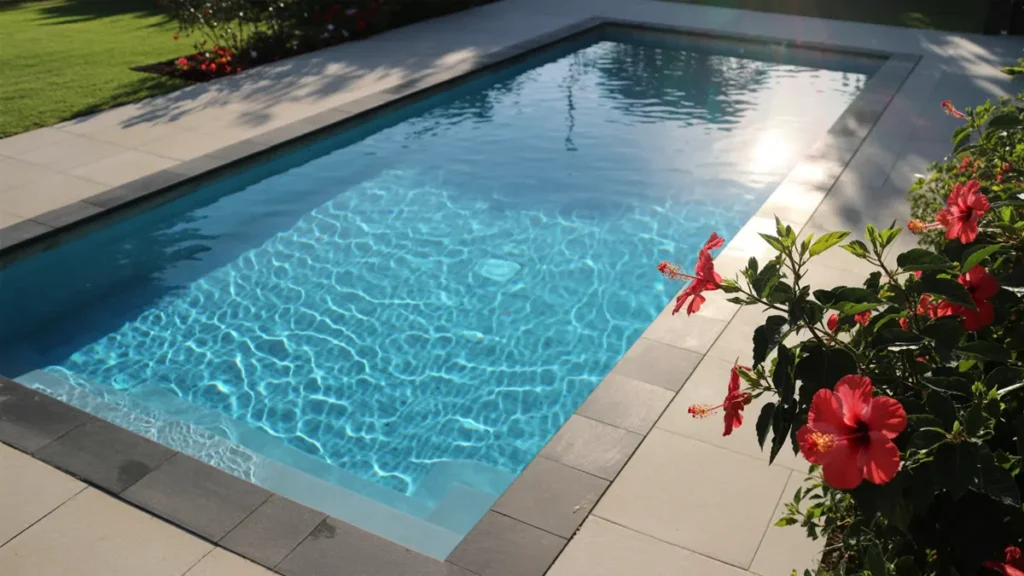
When considering installing a pool, one of the biggest decisions homeowners face is whether to choose an in-ground or above-ground pool. Both types of pools offer distinct advantages, but they come with their own set of considerations. Understanding the key differences between in-ground vs. above-ground pools, including their pros, cons, and costs, will help you make an informed decision for your Las Vegas home.
In-Ground vs. Above-Ground Pool: What’s the Difference?
In-ground and above-ground pools are installed differently, with in-ground pools requiring extensive excavation and construction, while above-ground pools sit on top of the ground. While in-ground pools are permanent fixtures, above-ground pools are considered semi-permanent and can be removed if necessary.
What is an Above-Ground Pool?

Above-ground pools are a cost-effective option for homeowners looking for a quick and temporary pool solution. These pools are usually made of materials like vinyl, resin, or steel, and are easy to install in a matter of days. They come in a limited range of shapes, such as round, oval, and rectangular, with a depth generally ranging from 48” to 54” — making them ideal for relaxation and cooling off, but not suitable for diving.
One of the major benefits of above-ground pools is their affordability; they are significantly less expensive than in-ground pools. They can usually be installed within a few days, making them a great option for homeowners in a hurry to enjoy their pool. Another advantage is their portability. Above-ground pools can be disassembled and relocated, which is ideal for renters or homeowners who may move. Additionally, they are easier and cheaper to maintain than in-ground pools, as their systems are simpler.
However, there are some downsides. Above-ground pools are limited in terms of shape and size, typically being round or oval and maxing out at a shallower depth, making them unsuitable for diving. Furthermore, they lack the visual appeal of in-ground pools and might not enhance the look of your yard as much. Despite being well-maintained, above-ground pools tend to have a shorter lifespan, generally lasting 10 to 20 years, far less than in-ground pools.
What is an In-Ground Pool?

In-ground pools are permanent installations that offer more flexibility in terms of size, shape, and design. These pools are built into a hole that is excavated on your property, and the materials used can vary, including concrete (gunite), fiberglass, or vinyl.
The major advantages of in-ground pools lie in their customization and longevity. In-ground pools can be designed in virtually any shape or size, and you can add features like tanning ledges, waterfalls, slides, and diving boards. These pools also add significant value to your home, especially in warmer climates like Las Vegas. Due to their durable materials, in-ground pools can last 30 to 50 years, making them a long-term investment. Additionally, they are highly attractive and seamlessly blend with your backyard, offering a visual appeal that can enhance the landscape.
On the flip side, in-ground pools come with high upfront costs, and installation can rise significantly depending on the pool’s size, design, and features. Moreover, the installation process can take weeks or even months due to excavation and construction. Maintenance is also more demanding and costly for in-ground pools, as they require regular cleaning, chemical balancing, and repairs, including resurfacing or replacing liners over time.
For installation or any pool-related service, you can reach out to Pools R Us for expert help.
In-Ground vs. Above-Ground Pools: A Side-by-Side Comparison
When comparing the two types of pools, there are several key factors to consider.
In terms of price, above-ground pools are much more affordable. This makes above-ground pools an attractive option for those on a budget or seeking a more temporary solution.
Installation is another important consideration. Above-ground pools can be installed in just a few days, while in-ground pools take weeks or even months to complete due to the excavation and construction involved. Additionally, maintenance for above-ground pools is generally simpler and more cost-effective than for in-ground pools, which require more frequent upkeep due to their size and complexity.
When it comes to longevity, in-ground pools outshine above-ground pools. While above-ground pools can last up to 20 years with proper care, in-ground pools can endure for 30 to 50 years, depending on the materials and maintenance. As for customization, in-ground pools offer nearly limitless options, while above-ground pools are more limited in terms of design and features.
Home value is also affected differently by the two types of pools. In-ground pools are more likely to increase your home’s value, especially in regions with warm climates, while above-ground pools may have little to no impact on resale value.
Finally, portability is a significant advantage for above-ground pools. If you need to relocate, you can easily disassemble the pool and take it with you. In contrast, in-ground pools are permanent and cannot be moved once installed.
If you need help making this decision or for a consultation, feel free to contact Pools R Us.
When to Choose an In-Ground Pool
An in-ground pool is ideal if you:
- Have a larger yard with enough space for excavation.
- Want a long-term investment that will last for decades.
- Seek a highly customizable design to create your ideal backyard retreat.
- Plan to stay in your home long-term and want to increase property value.
When to Choose an Above-Ground Pool
An above-ground pool is the better choice if you:
- Have a smaller yard or unsuitable ground conditions for excavation.
- Are on a budget and need a cost-effective option.
- Prefer a quicker installation process with less disruption.
- Don’t mind a less customizable design and are looking for a temporary or semi-permanent pool.
Conclusion
Both in-ground and above-ground pools offer their own set of benefits, depending on your needs and budget. An in-ground pool offers long-lasting durability, customization, and aesthetic appeal but comes with a hefty price tag and extensive installation time. On the other hand, an above-ground pool is more affordable, quicker to install, and portable, but it may not have the same visual appeal or long-term value.Carefully consider your budget, space, and lifestyle preferences to determine which pool type best suits your needs. Whether you opt for an in-ground or above-ground pool, you can look forward to creating lasting memories and enjoying your backyard all summer long. For further assistance or to start your pool installation project, visit Pools R Us.